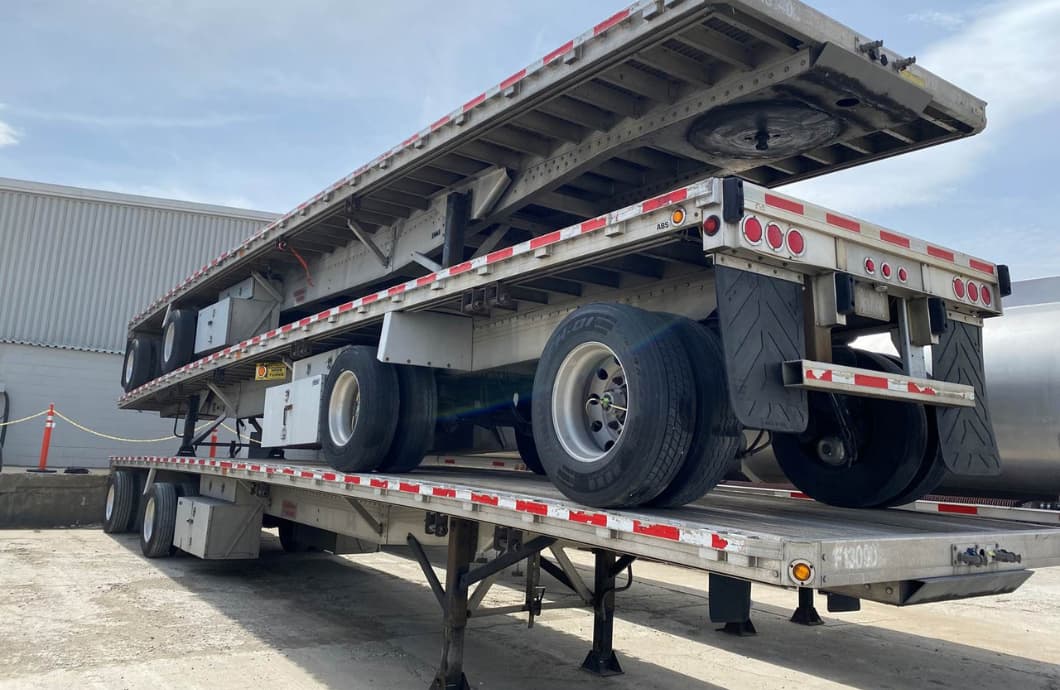
“Nope, that won’t work,” Russ grunted to himself.
Letting a whispered “gah” escape the back of his throat, he shook his head as his eyes scanned the hauling requirements from the email. It was a request for a quote to haul an excavator to its next destination.
He crossed his arms as a pit formed in his stomach that lodged in his ribs.
This was the third job in a month Russ had to turn down simply because his trailer wasn’t up to the task. The heavy equipment needed was too big—too heavy. His trailer, too small.
Sucking his teeth, he turned his head from practically taunting email. His aggravated squint cut through the window, landing on his utility trailer in the lot. With a huff, he reluctantly started typing up a reply email to let his customer down as easily as he could.
Sound familiar?
Whether you’re a construction professional needing to haul larger equipment or an equipment hauler looking to expand your business, your heavy equipment trailer may be holding you back.
Choosing the right heavy equipment trailer is crucial to taking your business to the next level.
Fortunately, there is a wide range of heavy equipment trailers for sale to choose from. In fact, there are almost too many types of trailers—making it tricky to choose the right one for your needs.
In this helpful guide, let's whittle down your options from among a selection of trailers. We’ll be doing so by asking a handful of relevant questions designed to get to the bottom of how you intend to use this new (or used) heavy equipment trailer.
Before we start looking at heavy-duty trailer styles for sale, you need to consider specifically what you need this new trailer to handle. Only after you know what the jobs entail can you begin connecting the dots to the right trailer models.
So, let's look at what you're up against!
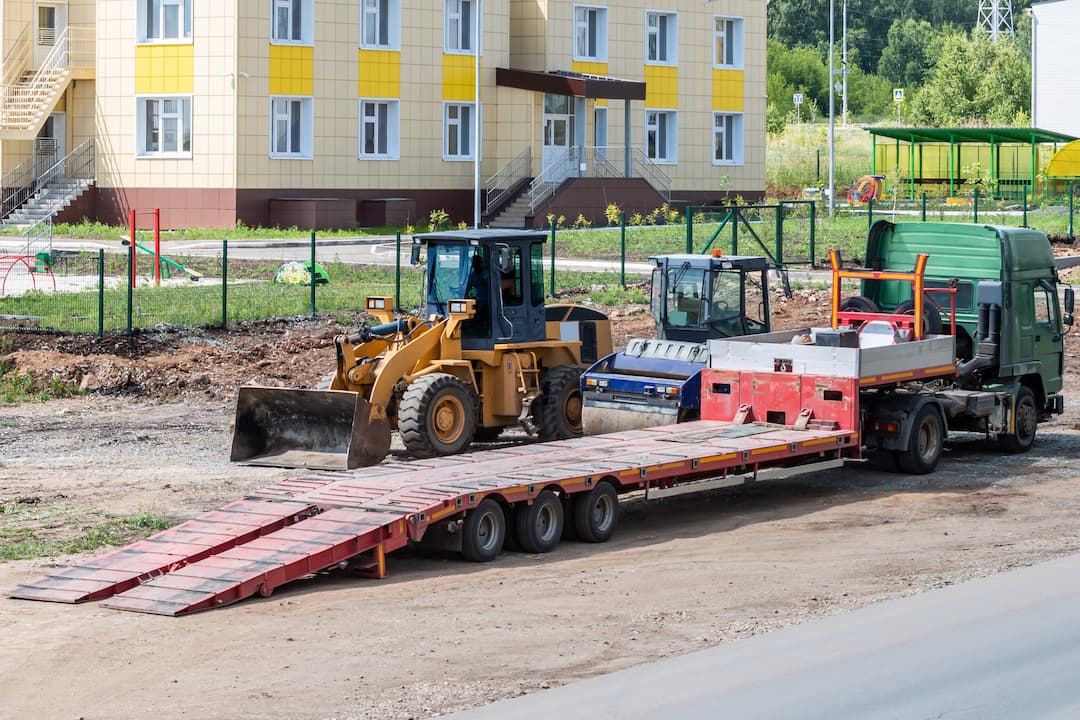
Make a list of all the equipment you need to haul—specifically focusing on the heaviest and largest pieces. Don't get tripped up thinking about what equipment you use or need to haul right now. Think ahead to the next few years and what kind of work you want to bid on.
Whether bigger, smaller, or the same, these equipment specifications will play a huge role in deciding what style and size of heavy equipment trailer to buy.
Once you’ve jotted down the types of heavy equipment you intend to haul, write down each item’s weight range. The weight of your equipment is possibly the most important factor to consider when it comes to choosing a trailer.
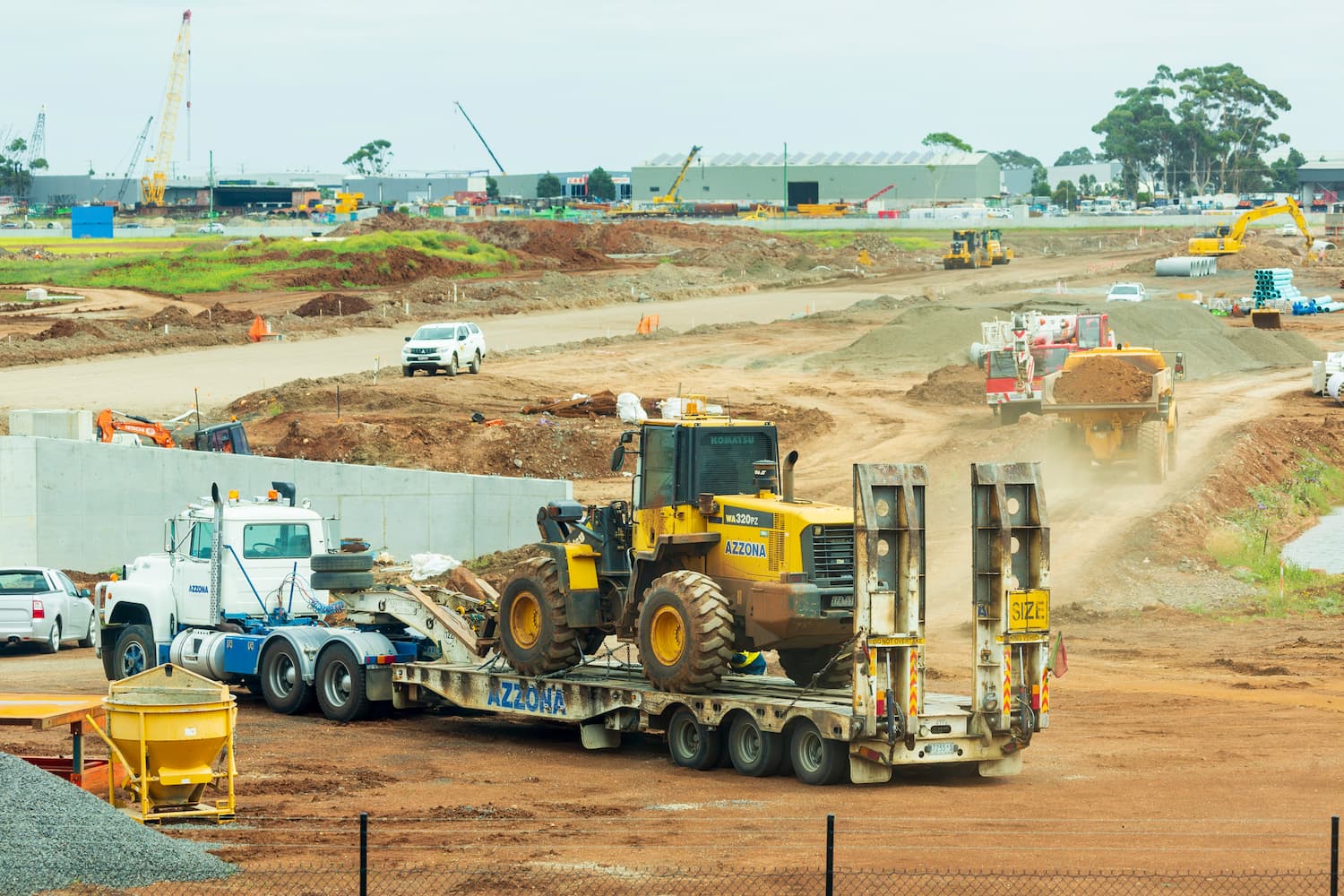

Trailers have a GVWR (Gross Vehicle Weight Rating), which is the total amount of weight they're designed to handle. Exceeding the GVWR can result in damage to your trailer, create an unsafe driving experience, and even land you in trouble with the law.
And you have a range to work within. A simple mini excavator can weigh as little as 2,000 pounds (908 kilograms) while the largest excavators can weigh well over 1,000,000 pounds (or 450 metric tons). And guess what? They all need trailers.
Terrain plays a role when deciding if a standard heavy equipment trailer is sufficient or if your situation demands something a little more heavy-duty.
- Paved Roads: If you'll be sticking to paved roads and highways, the specifications of a standard cargo trailer will likely suffice your wheel, tire, and suspension needs.
- Off-Road Terrain: Many job sites frequently feature unpaved roads, bumpy fields, or uneven slopes. In these cases, you will want to explore trailers designed for tougher conditions such as tilt trailers or specialized all-terrain trailers that can handle the extra strain.
Hauling heavy equipment frequently involves compliance with a range of regulations that vary based on where you operate. These regulations may dictate:
- Weight and Size Limits: Most states and municipalities restrict how heavy and how large your trailer and load can be.
- Licenses and Permits: You might need special licenses or permits depending on what you're hauling and where you're hauling it.
- Safety Equipment: Requirements such as brakes, lights, and chains may be outlined in your local laws and regulations.
Always check local state, county, and municipal regulations before hauling heavy equipment. The Federal Motor Carrier Safety Administration (FMCSA) website is a great resource for safety regulations that apply across the board.
Deckover Trailers
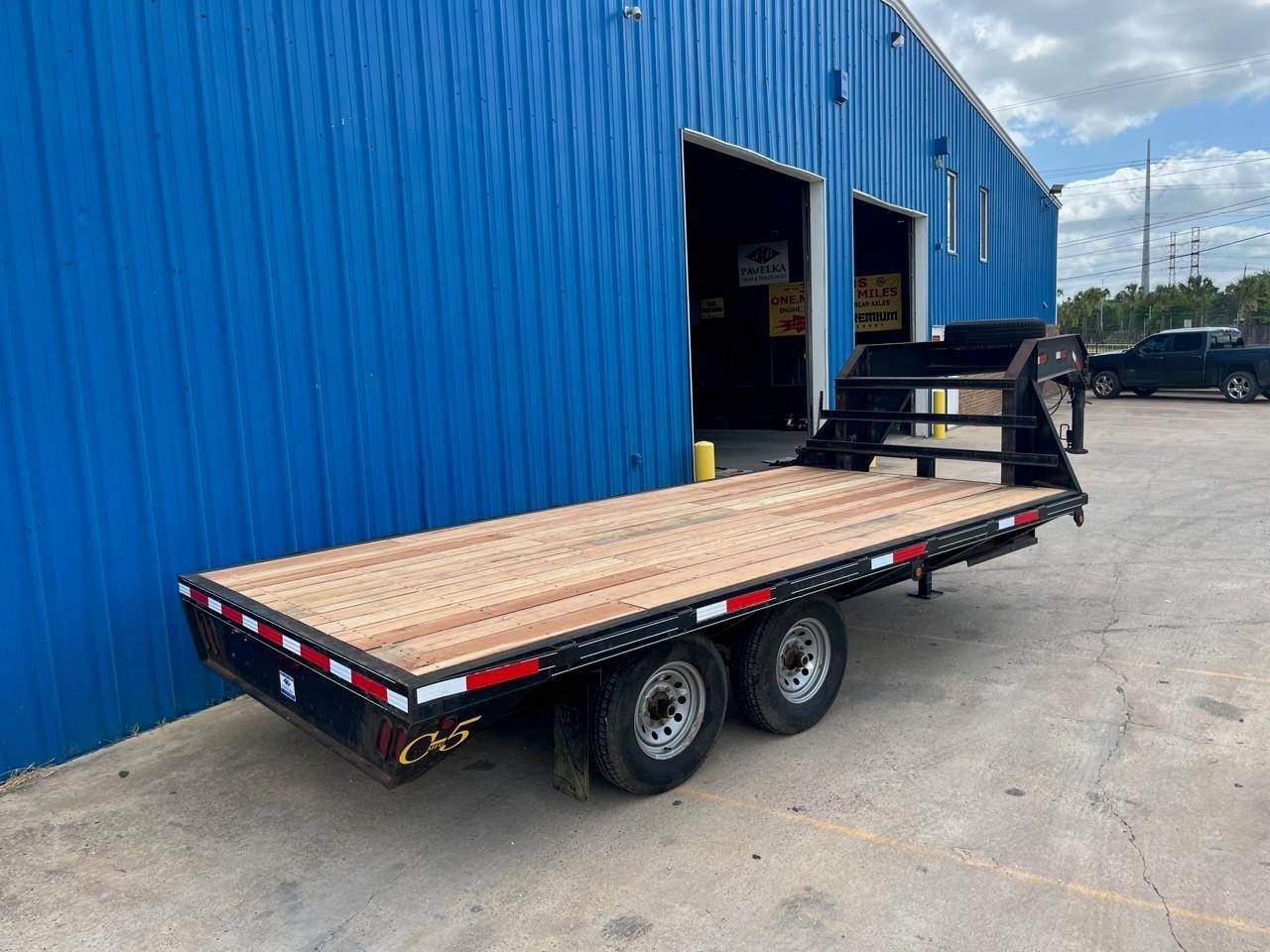
Deckover Trailer
Deckover trailers, sometimes called “deck over” trailers or raised flatbed trailers, feature a flat deck over the wheels—providing ample space for loading large equipment. Deck over equipment trailers are versatile and suitable for various heavy loads—from equipment to construction materials.
Deckover Tilt Trailers
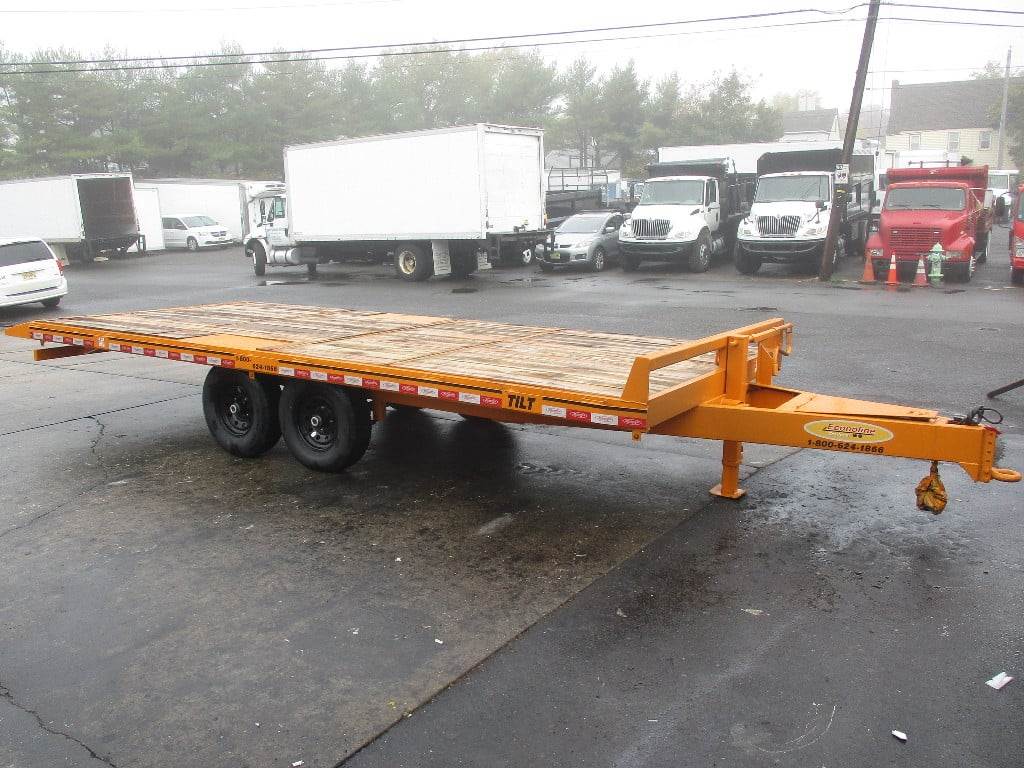 Tilt Deck Trailer
Tilt Deck Trailer
One subcategory of these are deckover tilt trailers—in which the deck tilts backward to act as a ramp for heavy equipment. Not only does the tilting action of a deck over tilt trailer make for an easier and safer equipment loading and offloading experience but also means that there are no additional ramps to manage.
Consider the stability of the deck and the trailer's weight capacity when opting for a deckover trailer.
For more about deckover trailers, we invite you to check out our deckover trailer buying guide.
Flatdeck Trailers
Similar to deckover trailers, flatdeck trailers are heavy-duty equipment trailers that offer a spacious flatbed for loading equipment. Flatdeck trailers tend to offer a lower deck height, making them easier to load and unload.
A popular form of flatdeck trailer are called dropdeck trailers— that feature a front raised deck and rear lower deck.
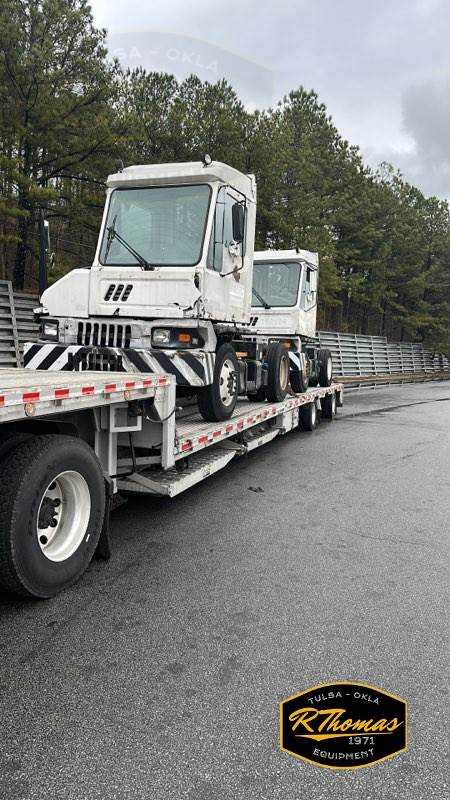
Dropdeck Trailer
Flatdeck trailers have no tilt function such as deckover tilt trailers, though their lowered deck makes for easier cargo management.
Flatdeck trailers are ideal for hauling taller equipment or machinery that don’t quite require the use of lowboy trailers. Ensure the trailer's deck height matches your loading needs.
Lowboy Trailers
Lowboy trailers are designed with a lower deck height that detaches, allowing for easy loading of heavy and oversized equipment. These trailers are often used for transporting large machinery like excavators and bulldozers.
Lowboy equipment trailers utilize a few different detachment designs to allow for loading of especially large heavy equipment. These are detachable goosenecks (DGN), fold-down goosenecks, fixed goosenecks (FGN), hydraulic/pneumatic tails, or axle tilt-bed trailers.
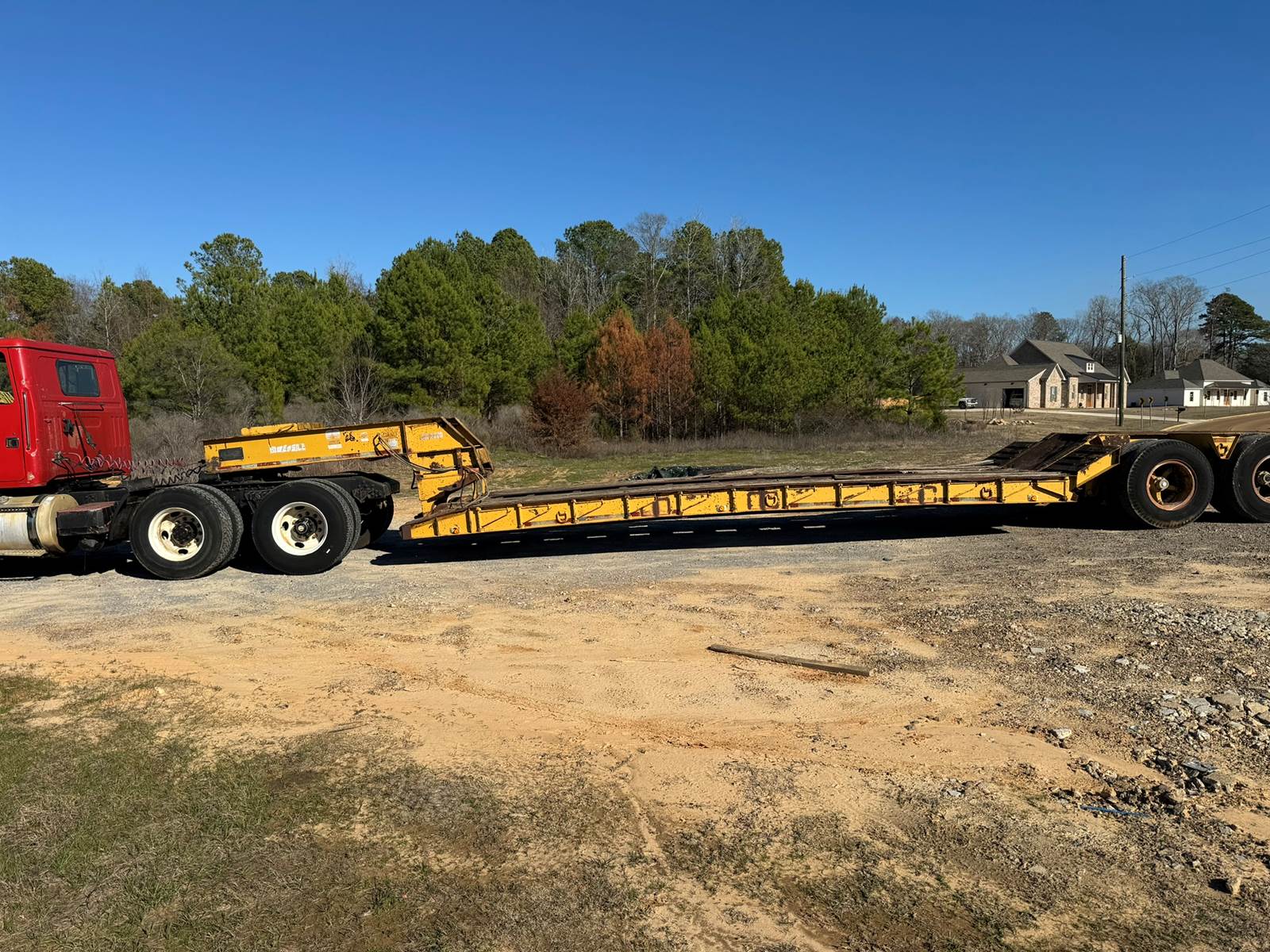
Lowboy Trailer
To help you understand the difference between these, we invite you to enjoy our in-depth guide to lowboy trailers for sale.
Pay attention to the trailer's ground clearance and weight capacity for optimal performance.
Specialty Trailers
Specialty trailers typically have trailer beds custom-designed with additional features to serve specific needs, such as transporting specialized equipment or vehicles. These trailers may feature customizations like ramps, tanks, tie-downs, or hydraulic systems installed or designed for specific cargo types. Evaluate your unique hauling requirements to determine if a specialty trailer is the right choice.
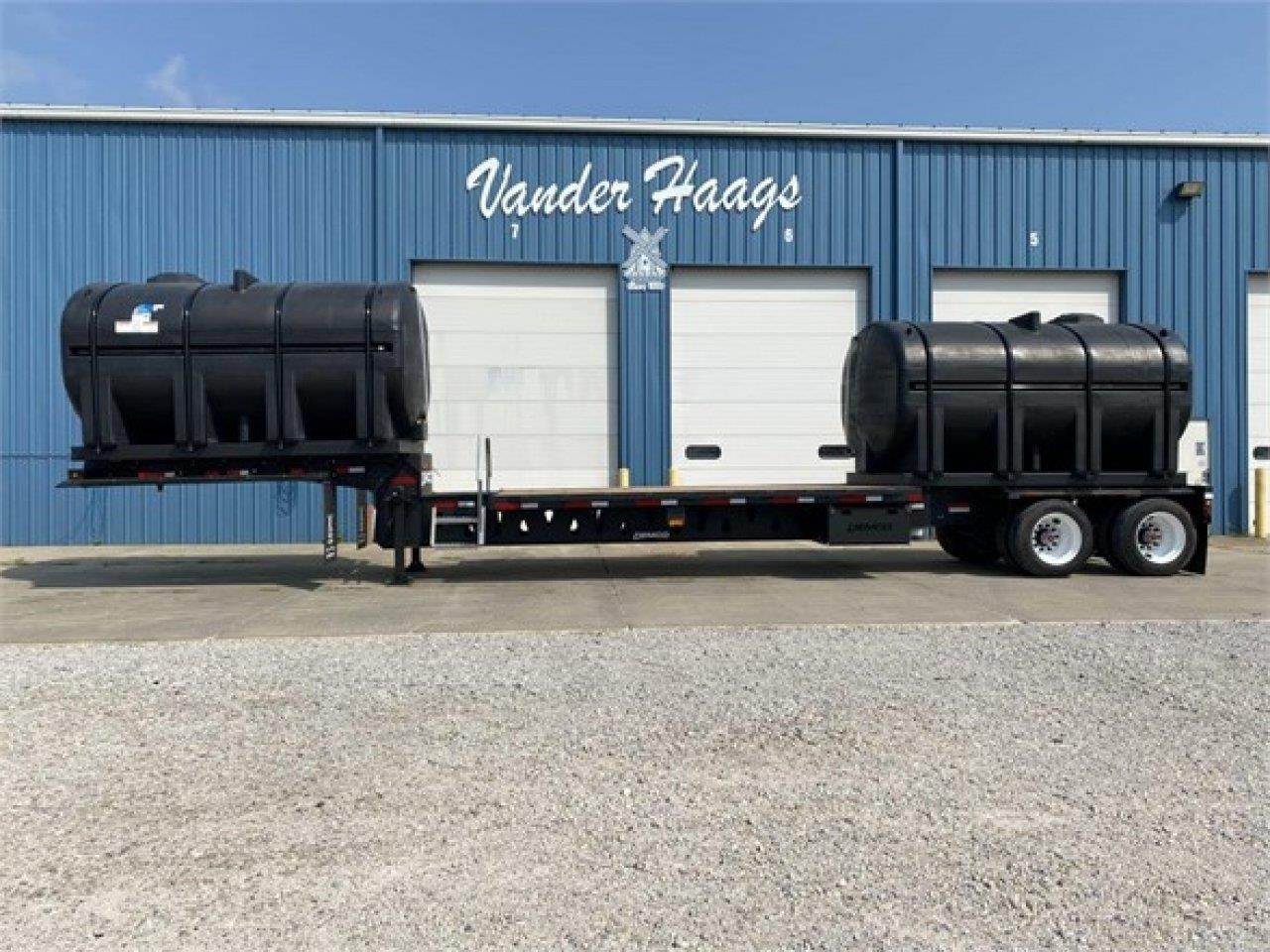

Example of Specialty Trailer—Tanker Cargo Trailer
Tag Trailers
Tag trailers, also known as tag-along or tagalong trailers, are hitched to a towing vehicle using a tag hitch. These trailers are versatile with a moderate-sized trailer bed—making them suitable for hauling various types of equipment. Consider the towing capacity of your vehicle and the trailer's weight distribution for safe towing.
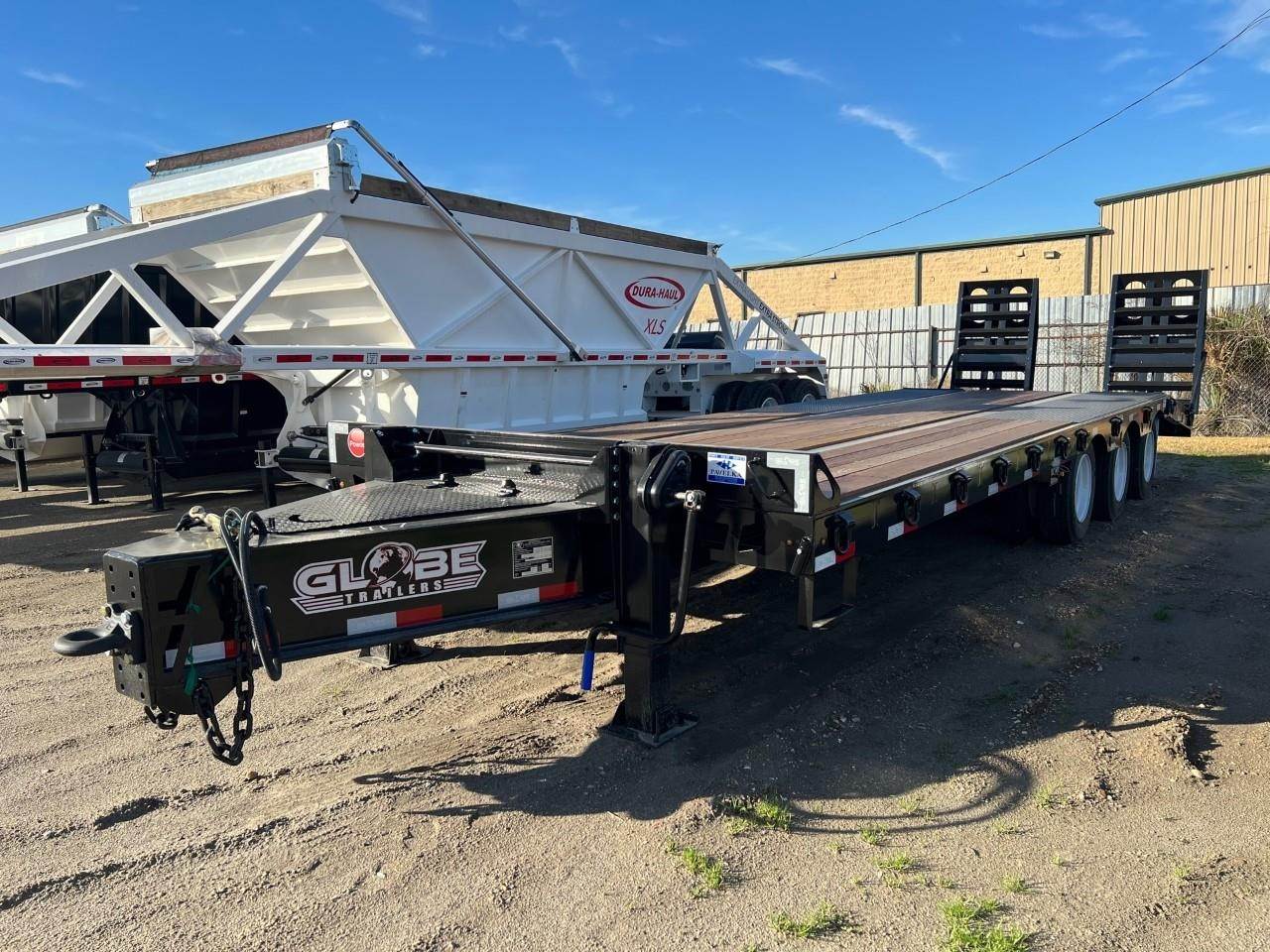
Tag Trailer
Utility Trailers
Utility trailers are multi-purpose trailers commonly used for transporting smaller equipment, construction materials, and tools, or to haul away debris. These trailers are lightweight and maneuverable, making them ideal for light-duty applications. Determine the payload capacity and durability of the trailer to ensure it meets your needs.
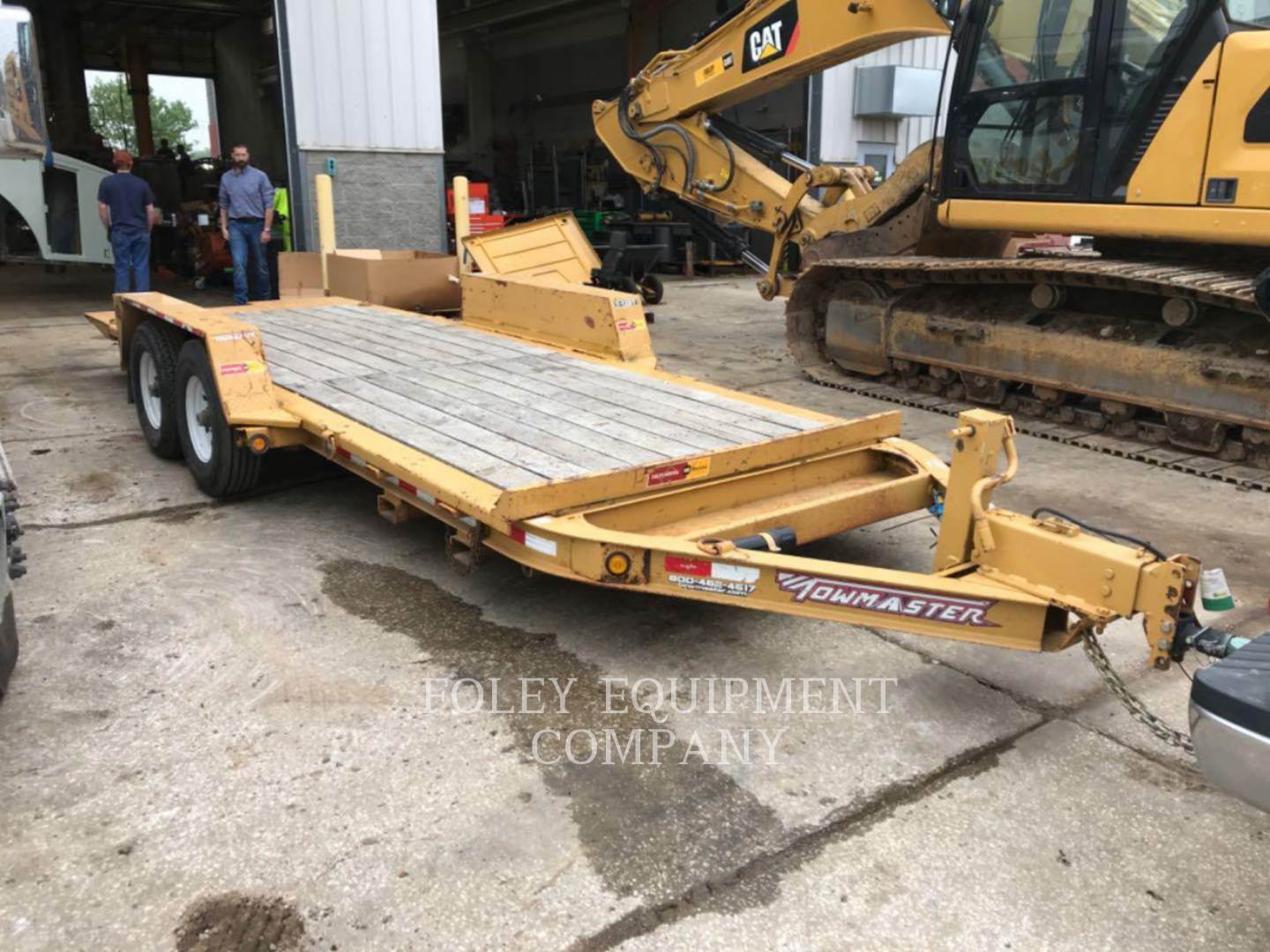 Utility Trailer
Utility Trailer
Choosing the right heavy equipment trailer involves considering various factors, including:
- Payload Capacity: Ensure the trailer can handle the weight of your equipment.
- Deck Height: Consider the deck height for ease of loading and unloading.
- Towing Vehicle Compatibility: Match the trailer to your towing vehicle's capacity.
- Customizations: Assess if additional features are necessary for your hauling tasks.
- Durability: Invest in a trailer that's built to withstand heavy-duty use and harsh conditions.
By carefully evaluating these factors, you can make an informed decision when selecting a heavy equipment trailer for your construction needs.
To help you determine the best heavy equipment trailer for your needs, take the following quiz:
- What type of heavy equipment do you primarily transport?
a) Large, heavy machinery
b) Various types of construction equipment
c) Tall or oversized machinery
d) Specialized heavy equipment
- What are your typical transportation routes like?
a) Mostly on highways and paved roads
b) Varied, including rough terrain
c) Through urban areas with tight spaces
d) Customized routes for specific equipment
- What is the average weight of your heaviest equipment?
a) Over 50,000 lbs
b) Between 20,000-50,000 lbs
c) Less than 20,000 lbs
d) Varies greatly for different equipment
- What is your top priority when selecting a trailer?
a) Maximum load capacity
b) Versatility and adaptability
c) Low deck height for tall equipment
d) Customized features for specialized equipment
Based on your responses, the best heavy equipment trailer for you is:
- Mostly A's: Deckover Trailer
- Mostly B's: Flatdeck Trailer
- Mostly C's: Lowboy Trailer
- Mostly D's: Specialty Trailer
Now it's time for the fun part—finding the perfect trailer for hauling heavy equipment. Consider these avenues for sourcing the ideal trailer.
Online Marketplaces
Website marketplaces ([cough] My Little Salesman [cough]) offer a huge selection of new and used heavy equipment trailers at varying price points from literally thousands of sellers. This large pool of sellers means that you have a better chance of finding the right trailer for the right price. Some marketplaces can also help connect you with affordable financing options and other perks.
Dealerships
Equipment dealerships often sell both new and used trailers. The benefit of buying a trailer from a dealership is that they frequently offer support services such as financing, inspections, or warranties.
Local & Online Auctions
Attending local equipment auctions can be a good way to find budget-friendly options—though it's essential to understand what kind of trailer is being offered before bidding.
Online auctions can help you expand your search perimeter further but be ready to pay a bit for shipping. But, because you’d be buying a trailer, it may make sense to come tow it back home yourself!
Points Covered
As we come to the end of this guide, let’s remember what we have covered:
- Identifying and Isolating Your Hauling Needs
- Understanding Trailer Types
- Factors to Consider
- Quiz for Personalized Recommendation
- Where to Find Your Next Heavy-Duty Trailer
We hope that we have helped you come one step closer to the heavy equipment trailer that will take your business to the next level!
Over a Thousand Trailers for Sale in One Place
Once you have determined what type of trailer will take your business to the next level, we’re excited to invite you to look through well over a thousand online trailer listings from your friends at My Little Salesman.
Since 1958, My Little Salesman has been connecting buyers to sellers of heavy equipment, commercial vehicles, parts, and all kinds of heavy-duty goods necessary to get the job done.